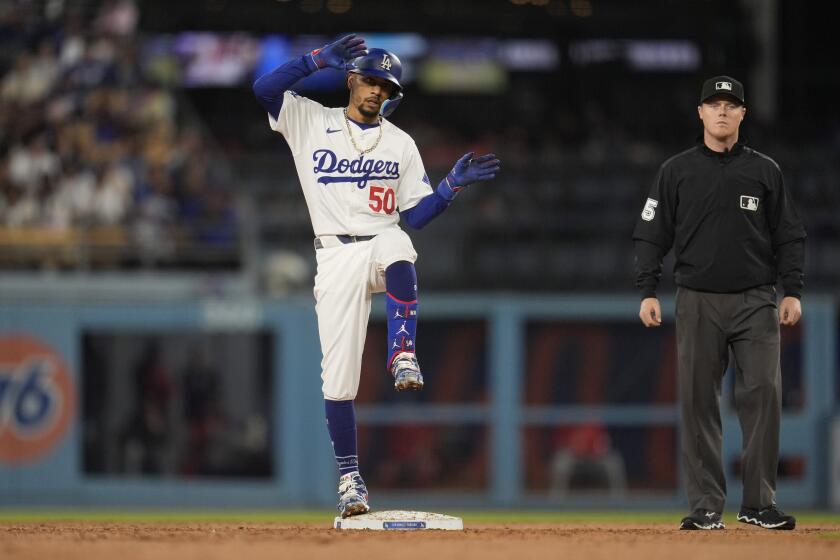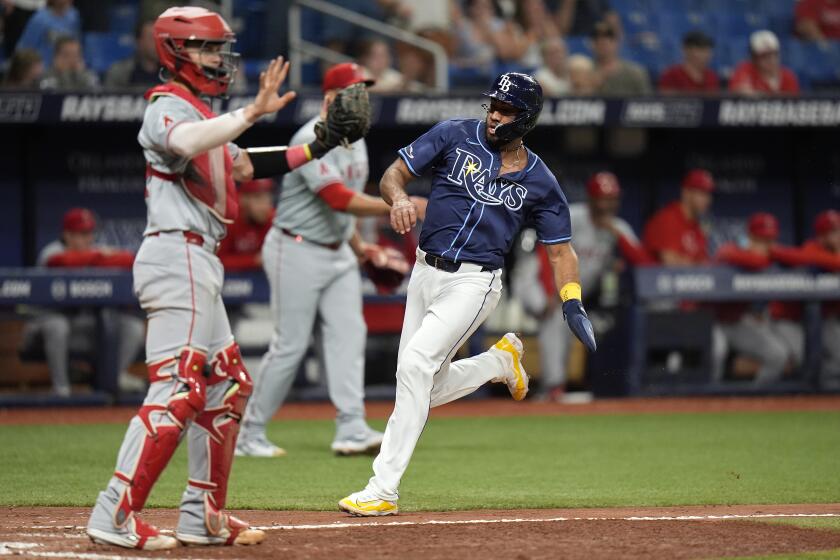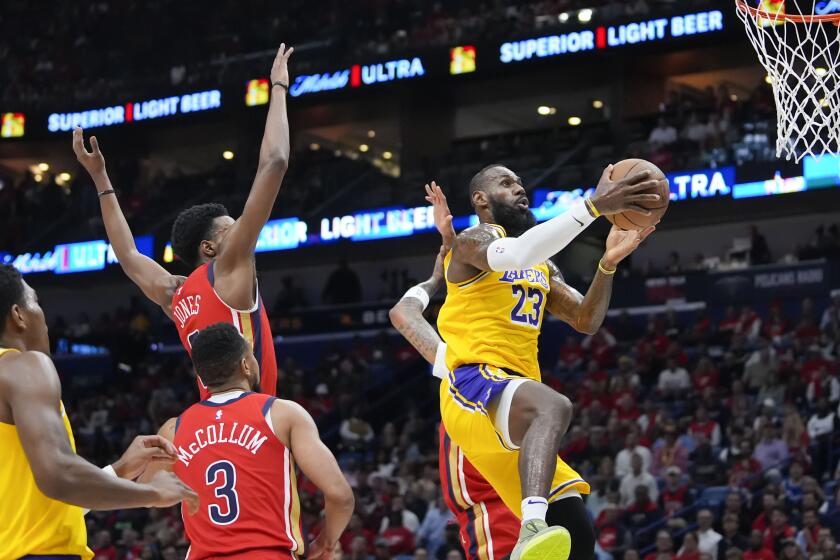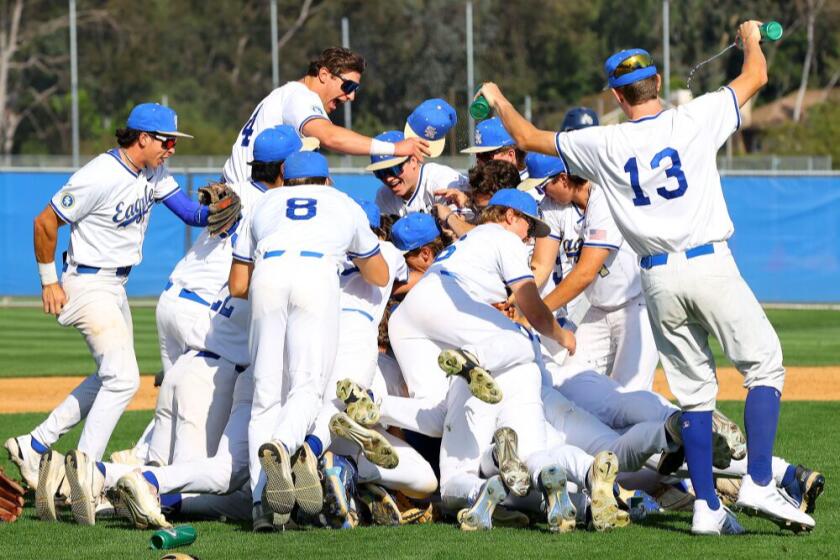Once banned by NHL for drugs, Brantt Myhres is hired by Kings to guide players
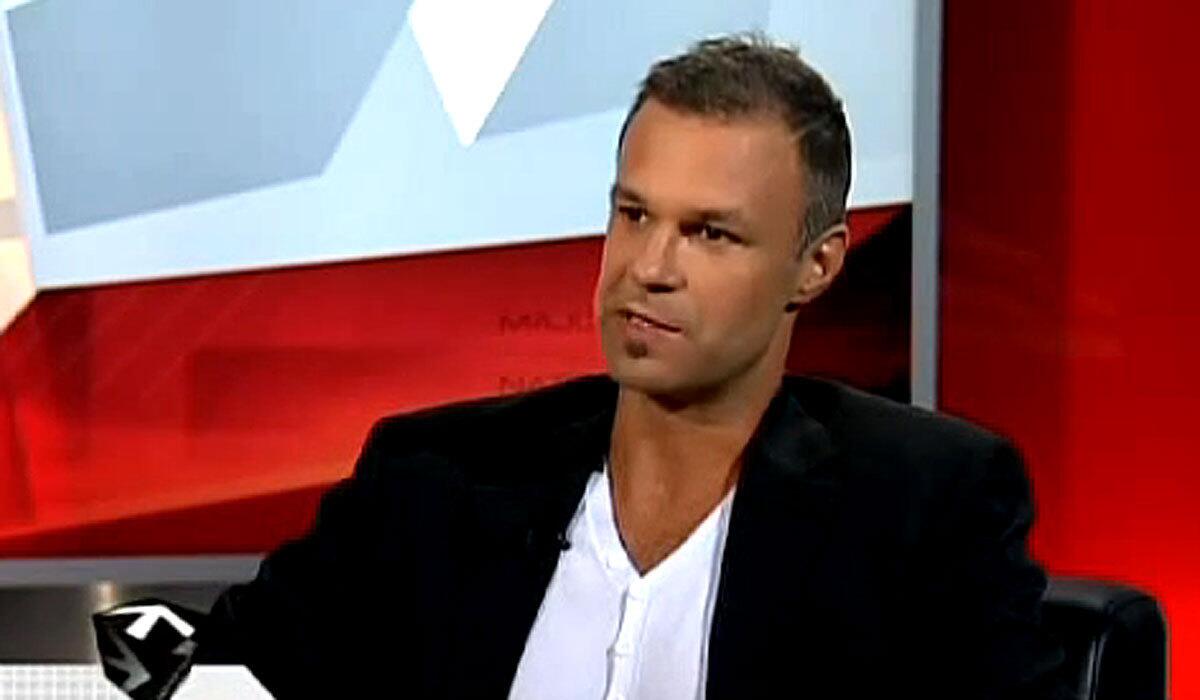
Brantt Myhres makes a TV appearance in 2011.
Kings management spent the better part of the summer on a fact-finding mission, exploring avenues to help promote education and enhance awareness regarding domestic violence and substance abuse issues.
These meetings and plans to bring in guest speakers for the staff and players are one thing. But potentially the most significant step was the move by Kings General Manager Dean Lombardi to hire former NHL player Brantt Myhres.
Lombardi confirmed the hiring of Myhres, who will be the team’s player assistance director. Myhres, who played for six NHL teams and was suspended four times by the league for what he called “dirty” drug tests and then hit with a lifetime ban, arrived in Los Angeles over the weekend and will be on hand for the Kings’ training camp and available to players and coaches throughout the season.
Myhres said he has been clean and sober for more than seven years and long held a vision about assisting current players, circulating proposals to NHL teams and the NHL Players Assn. about creating a specific in-house program. He previously studied substance abuse behavioral heath at Mount Royal University in Calgary and said he also had talks with the NHLPA in July before deciding to join the Kings.
“It just so happens Dean was the first general manager to be proactive enough to approach me on it,” Myhres said in an interview with The Times. “This is an in-house program that we’ve structured. They’re going to have every resource available to them, whether it’s about drugs, alcohol or domestic violence or gambling. They’re going to have resources to be able to use at any point of their playing careers.”
Lombardi earlier this summer discussed the steps he wanted to take in the aftermath of three arrests of Kings players in less than nine months. Two cases involved allegations of drug possession — Jarret Stoll and Mike Richards — and the third was defenseman Slava Voynov’s domestic violence incident.
Myhres, 41, played for Tampa Bay, Philadelphia, San Jose, Nashville, Washington and Boston. He first met Lombardi during his Sharks tenure and played for Kings Coach Darryl Sutter in San Jose. In his playing days, he said, there was no one he could confide in about his substance abuse problems because of myriad fears, namely job security.
“I just had to keep stuff to myself,” he said, describing himself as a chronic relapse in those days. “Back then, would I have used a player like myself? Absolutely.”
Trust and confidentiality will be hallmarks of the program. Having been through the suspensions, relapses and numerous forms of treatment, Myhres said: “There’s nothing that these players can say to me that I haven’t done 100 times over.”
His playing career ended in 2006, and he entered long-term treatment three days before his daughter Chloe was born in 2008. Myhres wasn’t allowed to leave the center.
“I didn’t see my daughter for the first seven months,” he said. “It was really hard on me. They kept telling me, ‘If you don’t get better, she won’t have a dad.’ I did whatever it took, and the [NHLPA] and the league, they basically saved my life.
“When you struggle with drug and alcohol addiction, you’re never a victor. When you go to bed at night and put your head down on the pillow, you’ve won the day,” he said. “I just look at it as day-to-day, spiritual maintenance, that’s been working for seven and a half years now.”
More to Read
Get our high school sports newsletter
Prep Rally is devoted to the SoCal high school sports experience, bringing you scores, stories and a behind-the-scenes look at what makes prep sports so popular.
You may occasionally receive promotional content from the Los Angeles Times.




